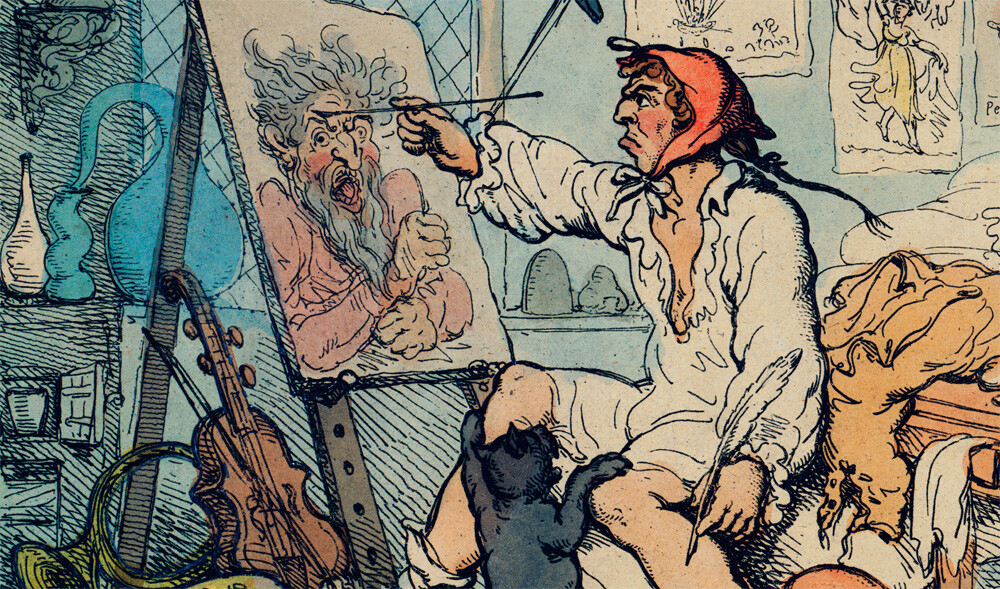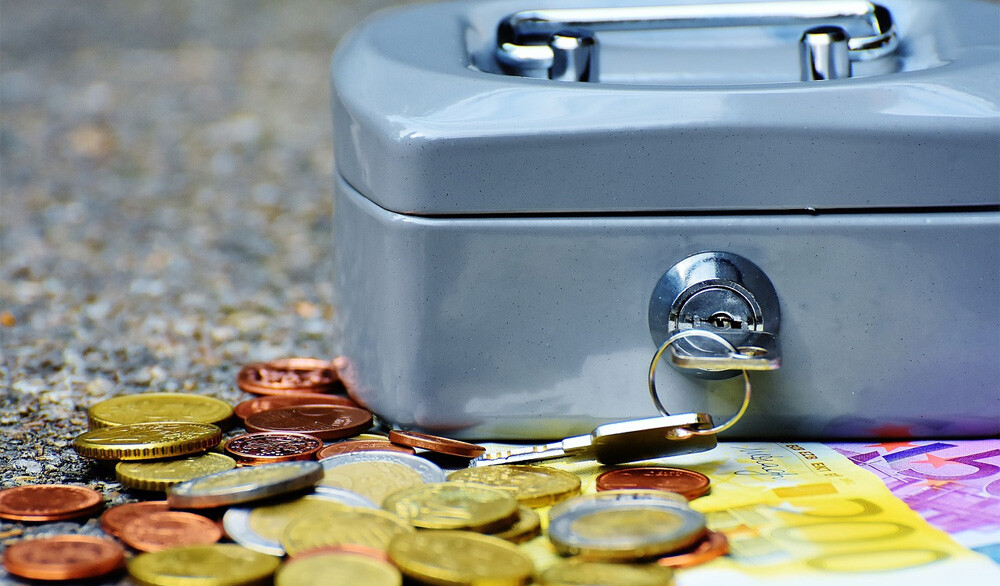NFTs Are So, So Dumb

So, it’s come to this. I don’t want to talk about NFTs, and you don’t want to learn about them. We both lead busy lives, we both have fascinating nudes open in other tabs. But now the biggest appeal of modern pornography is that it’s one of the few parts of the internet not trying to shove NFTs down our throats, so let’s zip up and learn what we can before our own grandmothers start pitching us on them.

(Nanna's Fresh Treats are PNG files you can pay $65,000 to trade.)
Webster’s Dictionary defines NFT as “screw off with that shit,” but I’m still capable of telling you that it stands for non-fungible token. Non-fungible just means that we’re talking about something unique and non-interchangeable. A dollar is fungible because you can switch a dollar for any other dollar and be in exactly the same position as before. But if your NFT says you own Girl With a Pearl Earring, while mine says I own Stickman Scribbled on KFC Napkin, we possess two wildly different assets.
The concussed cyberpunk element of NFTs comes from the fact that ownership is tied to a digital asset, whether it’s a photo or a GIF or a tweet. Ostensibly, the fact that someone owns a drawing of Inspector Gadget docking with Master Splinter is stored forever on a blockchain, the great permanent record that tracks transactions between tech bros named Bryce for all of digital eternity.
Don't Miss
To clarify: The blockchain doesn't actually preserve the image. You’re paying to associate your name with the URL where an image is located. If that URL eventually goes offline like the majority of URLs inevitably do, then you’re left with the digital equivalent of owning a melted popsicle.

Now, because you’re intelligent enough to understand this sentence, you’re probably asking, “But what does it mean to own a tweet?” And the answer to that, friend, is nothing. Everyone else on the planet can still look at a tweet or JPEG that you purchase. The asset itself isn’t improved. The only thing you’ve gained is the right to sell your record of supposed ownership to someone else, like a child claiming ownership of the monkey bars while everyone else just enjoys the playground, monkey bars included.
The fact that NFTs do nothing and accomplish nothing hasn’t stopped people from snapping them up like beanie babies stuffed with cocaine. When I said that only porn is resisting them, I wasn’t really joking. Taco Bell and Charmin are offering NFTs, although somehow not in collaboration. David Lynch and Interpol auctioned off some video clips based on a brief project they collaborated on a decade ago. Neopets are back, in NFT form. Lindsay Lohan, Lil Nas X, Simone Biles, the NBA and NFL, EA, Campbell’s Soup, and Quiznos are all hopping on the bandwagon. We could go on, and on, and on.
Welcome to the bold future of “What if Gorillaz were talentless and much uglier?”
If many of those sound like attempts to score free PR and quick cash, then you haven’t had a stroke since we confirmed your intelligence two paragraphs ago. I don’t blame the stars for cashing in, but they’re all just so joyless. Celebrities talk about their NFTs like their managers are holding a gun on them off-camera. Corporate promotions are fundamentally uninteresting, but corporate NFTs have especially strong “our boss is making us do this” vibes. Even Neopets NFTs are bland and sad and described with language ripped straight from PowerPoint presentations. Who’s genuinely excited about buying a “cute and loveable Neopets NFT living on the Solana Blockchain”?
But what are the problems with NFTs, you ask? Well, how much time do you have?
Like most of what’s ruined the internet, NFTs started as a good idea. When the concept was demoed in 2014, it was presented as a way for digital artists to easily sell and control their work. But the market has been flooded by grifters who exploit artists, or who just sell NFTs of an artist’s work without telling them.

There’s no regulation, so all you have to do is grab some images, throw them on your sketchy auction site, and wait for people with more money than sense to gather like flies to a carcass. Instead of verifying creators, NFTs have just made art theft more profitable. And when dubious sellers vanish with the hundreds of thousands of dollars they rake in, NFT owners get screwed too.
NFTs are also contributing to climate change. Most are purchased with energy-intensive cryptocurrency, and while that’s an article in itself, the sale of six NFTs by one artist used as much energy as the artist’s studio consumed in two years. Supporters claim the process will eventually get greener, but they do so with the same hand-waving flippancy as the people who tell you that Tesla is somehow going to magically solve climate change in some nebulous hypothetical future.
Every problem that NFTs have stems from the mindless philosophy behind them. When you read that someone dropped $590,000 on a Nyan Cat GIF, it’s easy to dismiss that as a colossal waste of money, and that’s because it is, but it’s specifically a new and novel way for rich people to waste money. Maybe someone got in on the ground floor of bitcoin and isn’t sure what to do with their profits, maybe they’re a bored celebrity like NFT fan Elijah Wood. Maybe it’s someone looking to hide or launder money before the government starts enforcing capital gains taxes on crypto and NFTs.

But people have always collected art, right? Sites that sell or hype NFTs certainly talk about them like they’re museum pieces. This $1,600 image you can save to your desktop as a JPEG is “a new digital illustration both speculating upon and engaging in collective near future experiences that will become as normal as seeing a squirrel in your neighborhood.” Those David Lynch NFTs are “eerie, frenetic, and unsettling … captivating in its manic energy and punk surrealist vibes.”
Yet NFTs, at least according to the NFT subreddit, “are set to radicalize how value interoperates across the digital landscape of media in the new Web 3.0 version of the internet.” Assuming that mess of buzzwords didn’t leave you closing your browser in anger, you can see the contradiction. NFTs are presented as art, but people are only buying them for the sake of owning them. Maybe you want to brag that you’re rich enough to drop 50 grand on a URL, or maybe you’re gambling and hoping to flip some cheaper NFTs when someone even dumber comes along. Either way, there’s not a lot of art appreciation going on here.
See, if you buy The Night Watch, you can brag about owning The Night Watch while enjoying the fact that the original is distinct from a print. Buying an NFT is like bragging that while the museum won’t sell you The Night Watch, only you were baller enough to insist that the gift shop take ten thousand bucks for one of the prints they’re handing out for free. Hell, even if you think collecting digital images sounds fun, there are websites where you can collect and swap trading cards for free. But it’s no longer enough to brag that you can spend a thousand dollars on a gold-wrapped steak; now you can brag that you spent a thousand dollars on nothing. Presumably the next hot trend will be burning money in front of the homeless.

I mentioned Beanie Babies earlier because owning an NFT means nothing to anyone who doesn’t also care about NFTs. That’s often been true of physical assets—baseball cards are largely meaningless to people who don’t care about baseball—but at least when the beanie baby bubble burst, the little guys still looked cute. NFTs are just assets for the sake of inventing more assets, pure uncut capitalism masquerading as art.
NFTs are an attempt to create scarcity where scarcity not only doesn’t exist, but shouldn’t exist. It’s the same bleak philosophy that gave us apps to let people bid for the public parking spot you’re occupying, auction off restaurant reservations by using fake identities to book every table in town, and flood the IRS helpline with robocalls so the slots closest to getting answered can be sold. It’s the creation of a market for the sake of creating a market, the ability to screw other people over and call it efficiency.
The idea of owning a GIF is antithetical to the whole concept of an open internet, but there’s no profit in respecting that. Creating artificial scarcity leads to madness and stupidity. Maybe, in the VR economy of some far-flung future, NFTs will be a way to look cool as you ride your custom neon T. Rex through a virtual town hall. But right now, they’re Hummel figurines being resold by sleazy middlemen. And every time you see someone drop six figures on one, you’re witnessing a person who would rather brag about pretending to own a URL than do something useful or even interesting.
Anyway, the first person to send me $10,000 gets a certificate declaring you the owner of this article. I made it in Paint.
Mark is on Twitter and wrote a book.
Top image: RingrEven/Wiki Commons